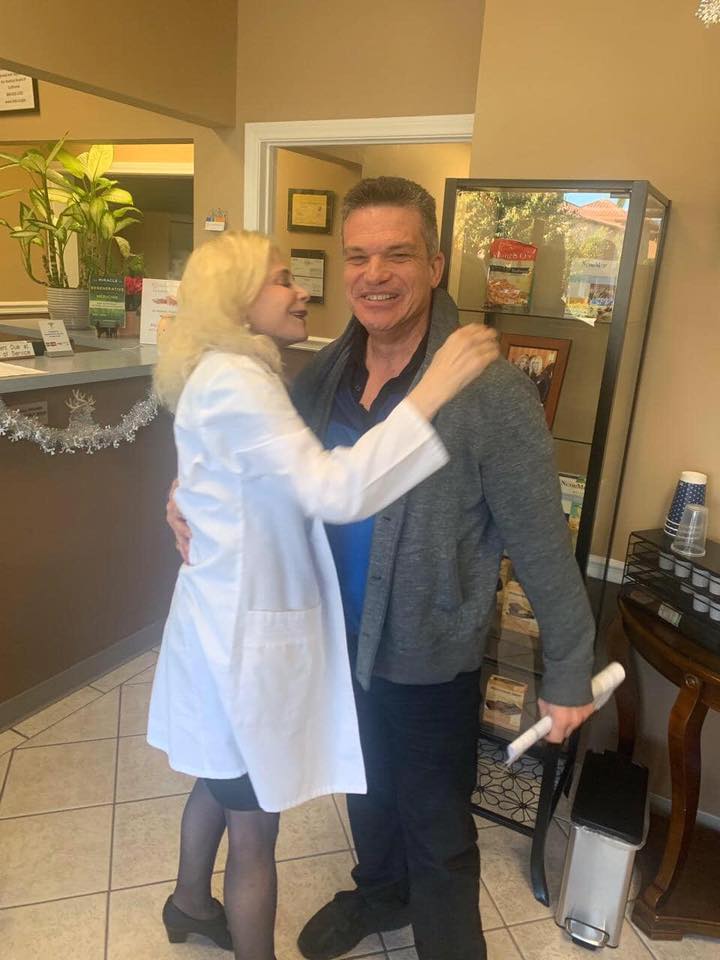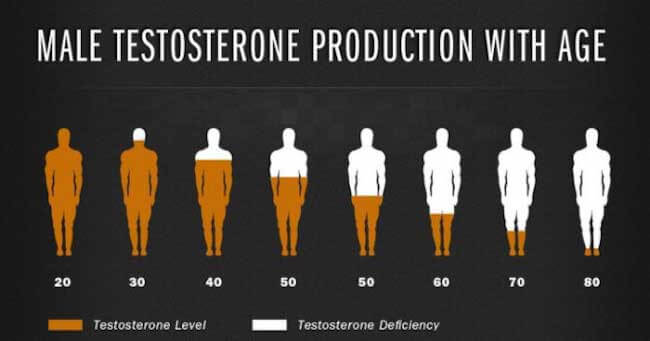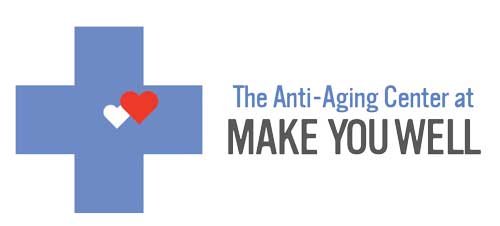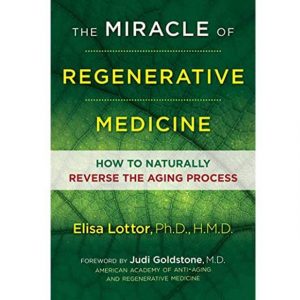Andropause Treatment Los Angeles
What Is Andropause?

Robert is extremely happy with his results!
Andropause Treatment in Los Angeles
Andropause or “male menopause” is the decline of male hormonal function, most notably testosterone. It is the gradual but progressive hormonal decline in men which occurs with aging. Most men are affected, some to a larger degree than others. While some men continue to produce healthy levels of testosterone into their 70s and 80s, others experience symptoms of andropause as early as their mid-thirties. However, symptoms usually manifest themselves between the ages of 40 and 55. Testosterone levels peak in men at age 25 and decline 1 to 2 percent per year thereafter.
What Are Androgens?
Androgens refer to male-like hormones, although women also have androgens—but lower levels than men. Andropause is also known as “male menopause” or PADAM – Partial Androgen Deficiency in the Aging Male. The predominant male hormone, testosterone, peaks in men at age 25 and begins to decline thereafter. By age 30, testosterone levels drop by about 10 percent every decade. By age seventy, most men have 30 to 50 percent less available testosterone than they had when they were young.
Andropause & Low Testosterone
Low testosterone has a number of negative effects on mental, sexual and physical health. The most common type of treatment for testosterone deficiency is known as testosterone replacement therapy. This can be an integral part of your andropause treatment plan depending on your blood panel results.
The Differences Between Andropause And Menopause
While women have a clear-cut sign of occurrence, the cessation of menstruation, to mark this transition, men typically have a slower and more subtle hormonal decline. Men and women experience many of the same symptoms during andropause and menopause, although symptoms of andropause are generally less intense and less noticeable. Frequently the changes which accompany andropause such as changes in attitude, mood, confidence, memory, energy level, sex drive, muscle strength, abdominal fat and physical agility are erroneously attributed to the stresses associated with middle age.
How Does Testosterone Affect Andropause?
Testosterone Is Critical For Every Aspect Of Life
Testosterone functions in numerous ways to keep the body maximally fit and healthy. It is an anabolic or building hormone that improves muscle mass, decreases abdominal fat and stimulates new bone formation. Testosterone is critical for optimal brain function because it bolsters mental sharpness, concentration, and memory. It enhances energy, flexibility, and mobility. Testosterone increases libido (sex drive), is a natural antidepressant, and helps to maintain healthy cholesterol levels. A normal testosterone level also helps protect against Alzheimer’s disease and Parkinson’s disease.
What Affects Testosterone Levels?
As men age, testosterone decreases and estrogen increases. There are several reasons for this. First, testicular production of testosterone decreases with age, as noted above. Second, as men age, testosterone can be further diminished by conversion to estrogen. Third, the increased production of sex-binding globulins makes testosterone unusable. Importantly, not all estrogen in men is negative; small amounts are necessary to improve brain function, protect the heart, maintain strong bones, and increase male sex drive.

Other factors may contribute to testosterone deficiency. Mumps during childhood can affect testicular production of testosterone. Alcohol, stress, and obesity are associated with a decline in testosterone and an increase in estrogen. Many drugs affect the liver and reduce the amount of available testosterone, including nonsteroidal anti-inflammatory agents, Tylenol, aspirin, statins, some heart and blood pressure medications, antidepressants, stomach acid blockers, and chemotherapy. As testosterone levels decline, typically there is a deterioration of both mental and physical health. The signs and symptoms of andropause vary from man to man and may be overlooked for years.
What Are The Most Common Signs And Symptoms Of Andropause:
- Urinary problems
- Body fat increase (particularly abdominal weight gain)
- Muscle loss
- Decreased sex drive, & inability to achieve or maintain an erection
- Reduced motivation
- Nervousness, anxiety, and irritability
- Poor sleep / insomnia
- Memory loss
- Fatigue
- Gynecomastia(enlarged breasts)
- Hot flashes
- Night sweats
- Decreased muscle strength and stamina
- Mood swings and decreased mental clarity
- Depression
- Hair loss
Has Testosterone Replacement Therapy Been Linked to Prostate Cancer?
Testosterone has not been shown to cause prostate cancer. It is the elevated level of estrogen compared to testosterone that is a risk factor for both prostate enlargement and prostate cancer. Restoration and optimization with bioidentical testosterone during andropause can relieve many of the above mentioned deficiency symptoms and considerably improve the quality of life in men. Bio-identical testosterone can also reduce the severity of coronary heart disease, osteoporosis and diabetes. Because hormone needs differ from person to person a “one size fits all” approach will not work.
At Southern California Center for Anti-Aging, testosterone therapy for men is customized and based on symptoms, a physical exam and hormone test results.
Contact Us Online
Our Office
— Stephanie
Get In Touch With Us


